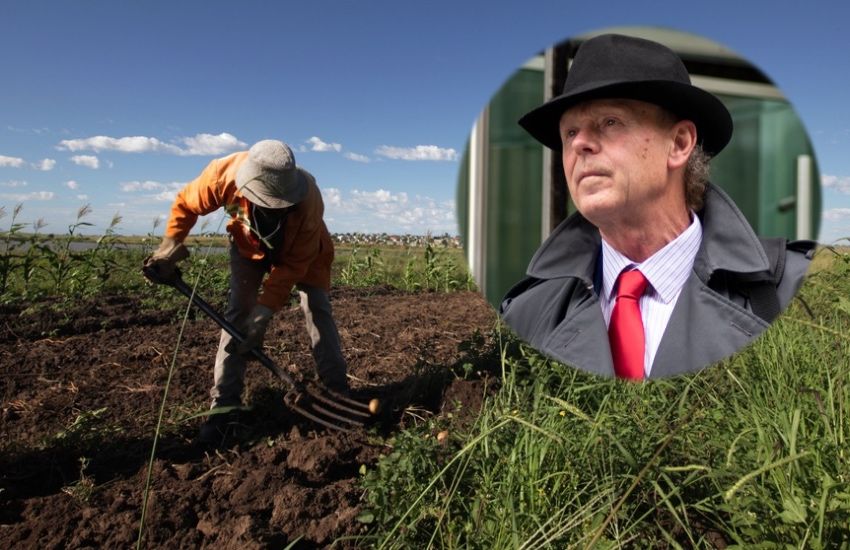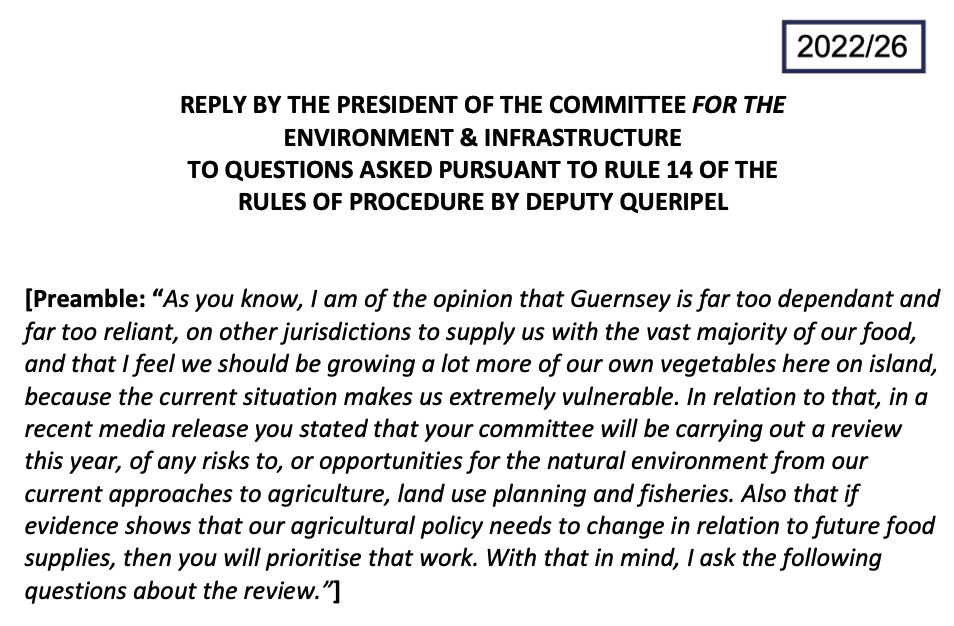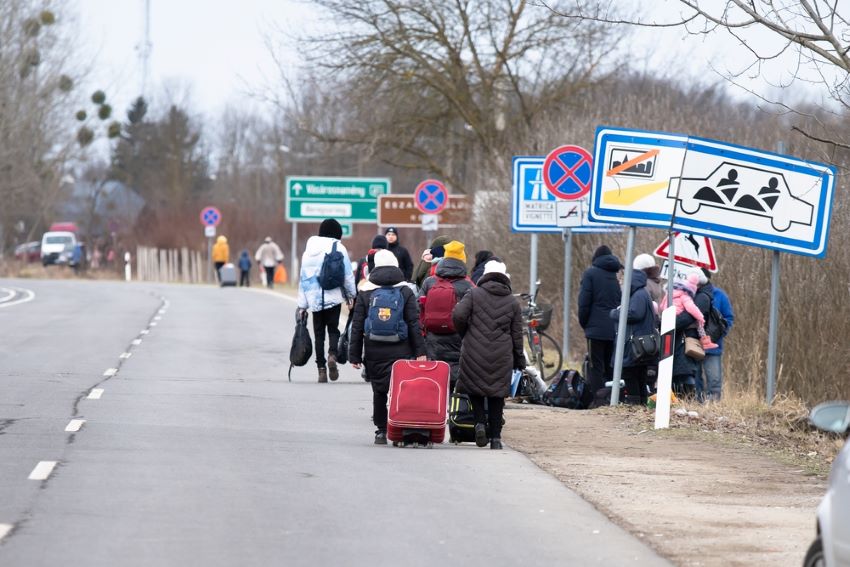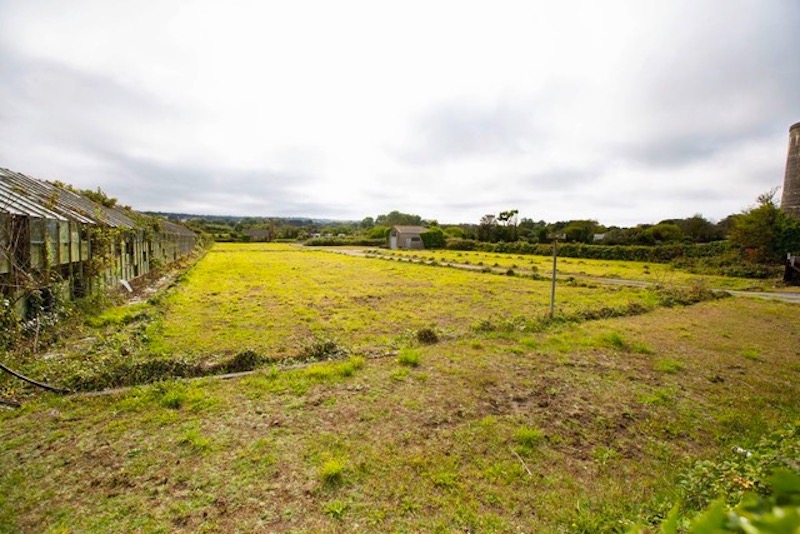


Deputy Lester Queripel has said he is “really disappointed” with responses received to his questions on the island’s food supply from the President of the Committee for the Environment and Infrastructure.
“The reality is we really do need to start growing a lot more of our own food and stop relying so much on other jurisdictions. It’ll be too late when we get to crisis point, so we really do need to be a lot more proactive now,” said Deputy Queripel.
They also said a review into the island’s agricultural policies will commence later this year to identify the relationship between the sector and biodiversity.
But Deputy Queripel believes that the Committee should “take notice of the statements that professionals working within the food industry are making on a daily basis”.
He also pointed out the “approximately 200 redundant vinery sites” in the island, suggesting utilising them for food production to “ease the burden” of external dependence.
He concluded “I can do no more than I’ve done… someone else with a lot more influence than me now needs to take up the mantle”.

Pictured: Deputy Queripel recently received responses to Rule 14 questions on local food supplies from the President of E&I, Deputy Lindsay de Sausmarez.
He said various food industry stakeholders are increasingly sounding the alarm about the intensifying pressures on food production experienced globally.
“Farmers’ leaders in the UK warned the Environment Secretary, George Eustice, about the crisis at emergency talks last week,” said Deputy Queripel.
“They warned of a complete collapse in egg and pork production because so many farmers are giving up, due to the soaring costs of feed and energy.
“The wholesale price of butter and skimmed milk powder, which is used in processed foods, has increased by 58% in the last year according to the Agriculture and Horticulture Development Board.
“Consequently, future shortages are a real concern. Tescos, Morrisons, Waitrose and Iceland have already put a limit on how much sunflower oil customers are allowed to buy and have said this will soon apply to other products."
Deputy Queripel also highlighted Russia and Ukraine’s position as a major exporter of grain, saying this will shortly affect availability of staples such as bread, pasta, chicken, and “even beer”.

Pictured: The Russia-Ukraine war has magnified concerns about the global food system.
“Karen Betts, of the Food and Drinks Federation said recently that products such as white fish and wood pulp, which is used for food packaging and labels, are becoming scarce as the supplies from Russia and the Ukraine dwindle,” continued Deputy Queripel.
“Producers of salad crops in the UK and on the continent are severely cutting back on production because of soaring energy costs. As a result, there will soon be a shortage of salad crops worldwide.
“Professor Erik Millstone of Sussex University said recently that a failure by supermarkets to pay farmers more to cover their costs, will soon result in food shortages.
“National Farmers Union leader Minette Batters said recently that this is the most serious situation for food production since the Second World War.
“We are totally reliant on other jurisdictions, who are already struggling themselves, to supply us with a basic commodity that is absolutely essential to our very survival: food."
Deputy Queripel doubts that a substantive plan for major disruption to the island’s food supply chains exists, adding that “we wouldn’t need one if we grew a lot more of our food here on the island”.

Pictured: Un-used vinery sites were touted by Deputy Queripel as perfect places to ramp-up food production.
Deputy Queripel said of the redundant vinery sites that “many of them are in pristine condition and ready to go”.
“Some years ago, I suggested the States purchase three or four of the largest sites and start growing a lot more of our own vegetables. The cost of oil wouldn’t be a problem because many of the vegetables we eat can be grown in ‘cold house’ conditions," he said.
“We will never be totally self-sufficient, but it would ease the burden of having to rely so heavily on other jurisdictions if we did grow more of our own food. Sadly my suggestion wasn’t taken up."
Comments
Comments on this story express the views of the commentator only, not Bailiwick Publishing. We are unable to guarantee the accuracy of any of those comments.